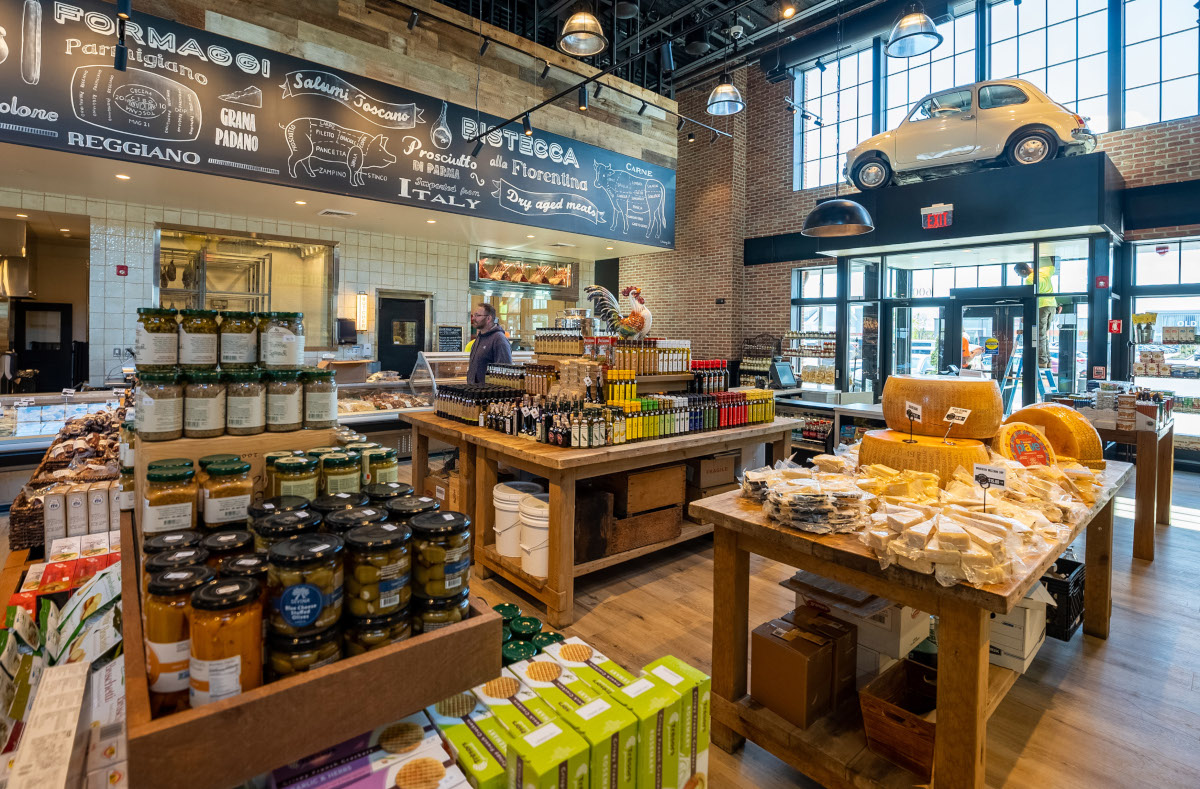Tuscan Market in Salem, New Hampshire, can be a bit overwhelming. A convivial crowd in the back is usually enjoying food and drinks in the open café, while the front space bustles with shoppers and staff wending through a riot of tasty retail fare. To the right of the entrance, a case spans the length of the space, displaying carefully selected meats and a variety of heat-and-eat specialties, from chicken parm to Brussels sprouts. Up near the ceiling, house-made charcuterie is hanging to cure in a special case, while a display front and center is piled with chunks of freshly cut parmesan cheese, with a carefully curated selection of wine, beer, and sodas just beyond.
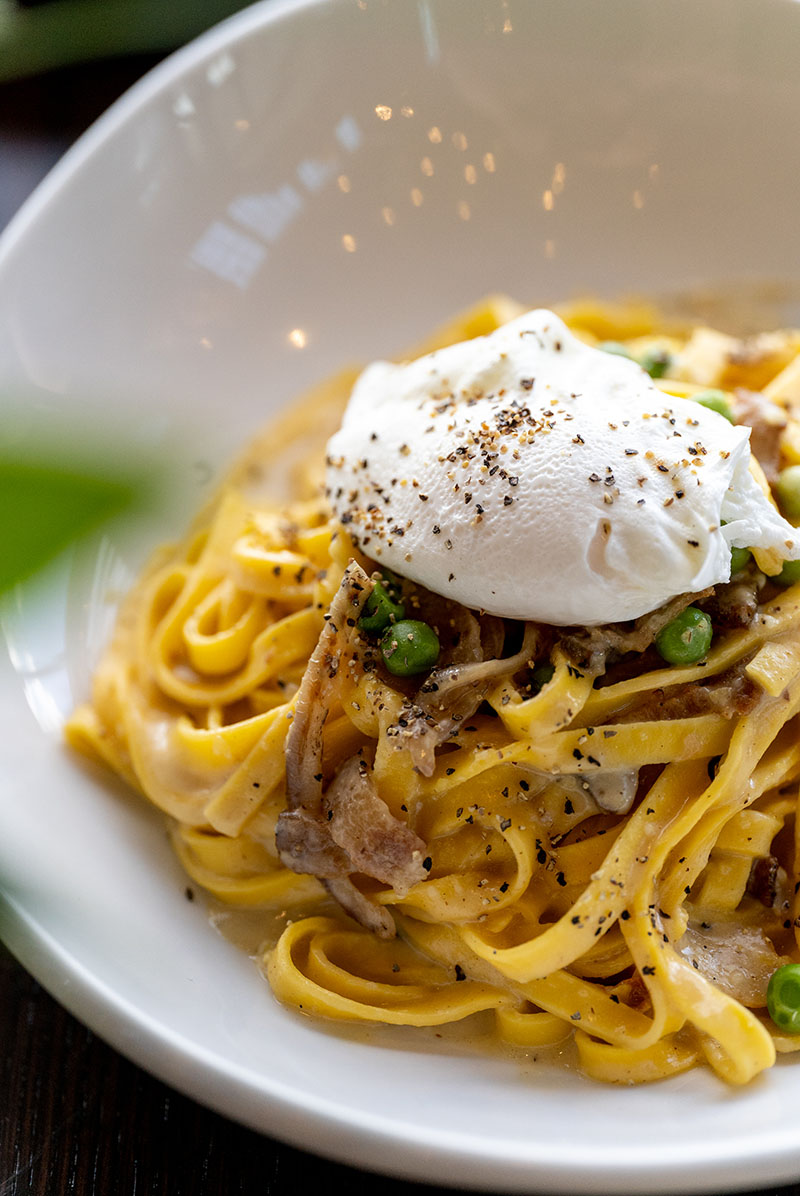
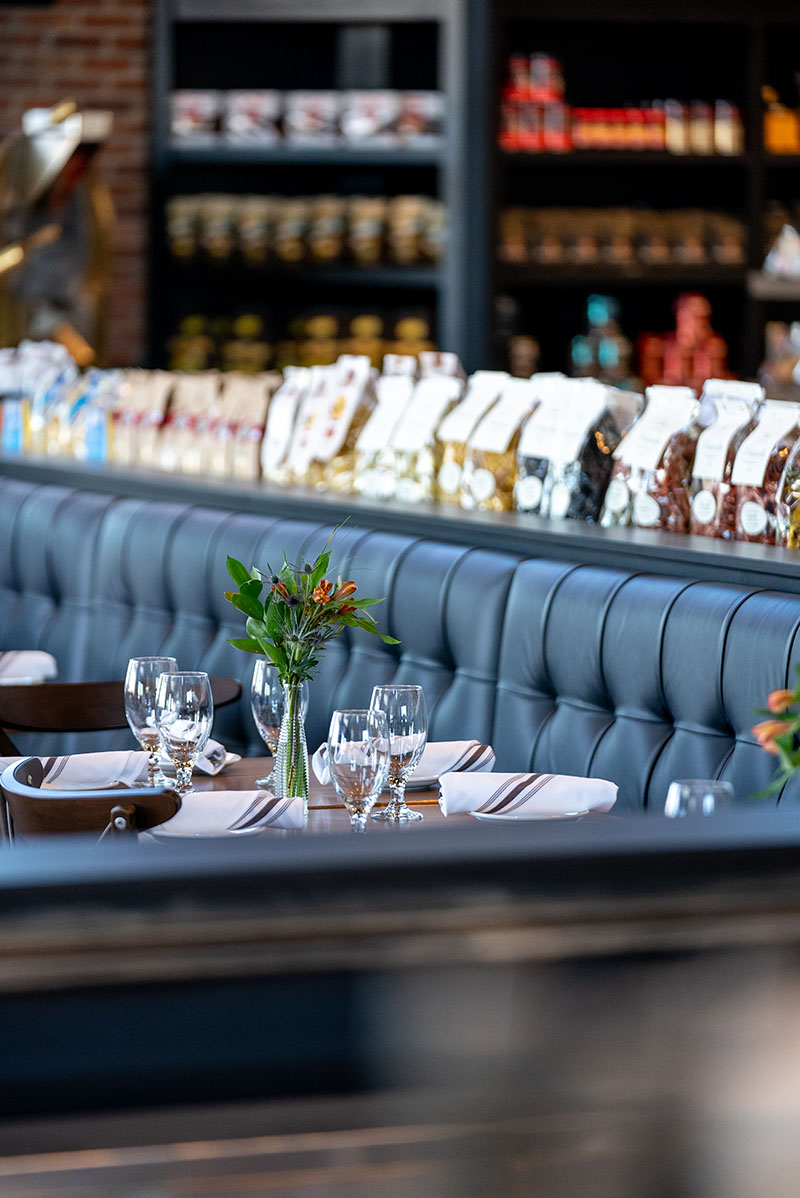
The market is currently the centerpiece of Tuscan Village, owner/entrepreneur Joe Faro’s ambitious lifestyle center that also features a small lake, plenty of outdoor space, apartments, and upscale stores like L.L. Bean, with more businesses—including a Tuscan hotel—in the works. Firepits, outdoor seating, and a seasonal beer garden augment the offerings.
The new Salem market made its debut a little over a year ago, moving from its former location to house an extensive retail section, the restaurant, and even a cooking school—with nightly classes that connects the market to Williams-Sonoma—next door. So you can literally learn how to make your own pasta, for example, and then pick up all the ingredients and the necessary equipment to make it at home, all under one roof.
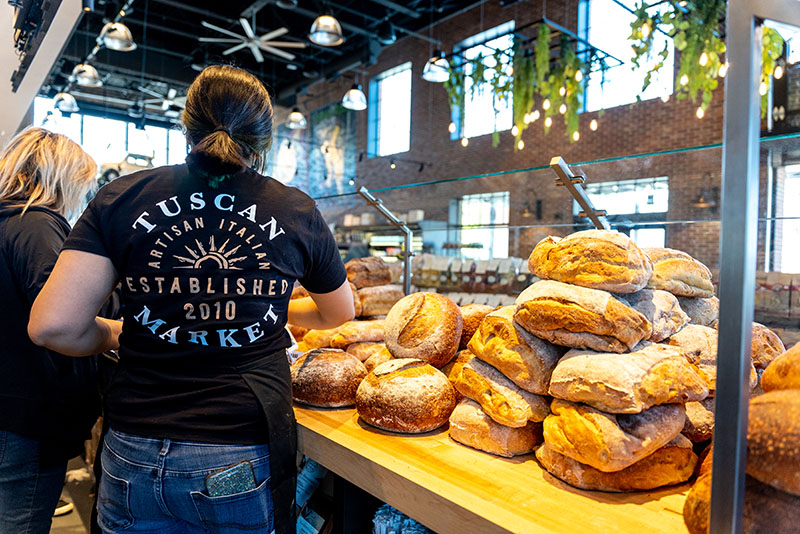
Much of the retail product is either imported directly from Italy, or made by Tuscan’s team in Lawrence, where fresh pasta, bread, and heaps of desserts are crafted daily.
“We often get guests coming into the market and asking which loaves were baked today,” says David Crinieri, culinary director for Tuscan Brands. “And the answer is all of them.” Offerings like ciabatta and pane Pugliese travel from Lawrence to be finished in ovens at the market before stacking into display cases. Anything left at the end of the day is destined for food pantries or bread crumbs.
While that fresh bread and pasta form the backbone of the retail space, it is also populated with staples like extra virgin olive oil and luxuries you might overlook, Crinieri explains. “Everybody wants their prosciutto and their pasta, but there are hundreds of other things,” he says. Things like Tuscan’s own truffle honey, which infuses local wildflower honey with black truffles imported from Italy to create a delicious New England meets the Old World combination that is perfect on a cheese board.
See for yourself at Tuscan Market’s new location in Portsmouth. While this branch is strictly a restaurant, without the extensive retail offerings of its Salem sibling, it has a lovely cheese and charcuterie board with that house-made truffle honey, alongside a casual menu of pizza, pasta, and salads. That location opened in May on Market Square, with patio seating and a large bar area.
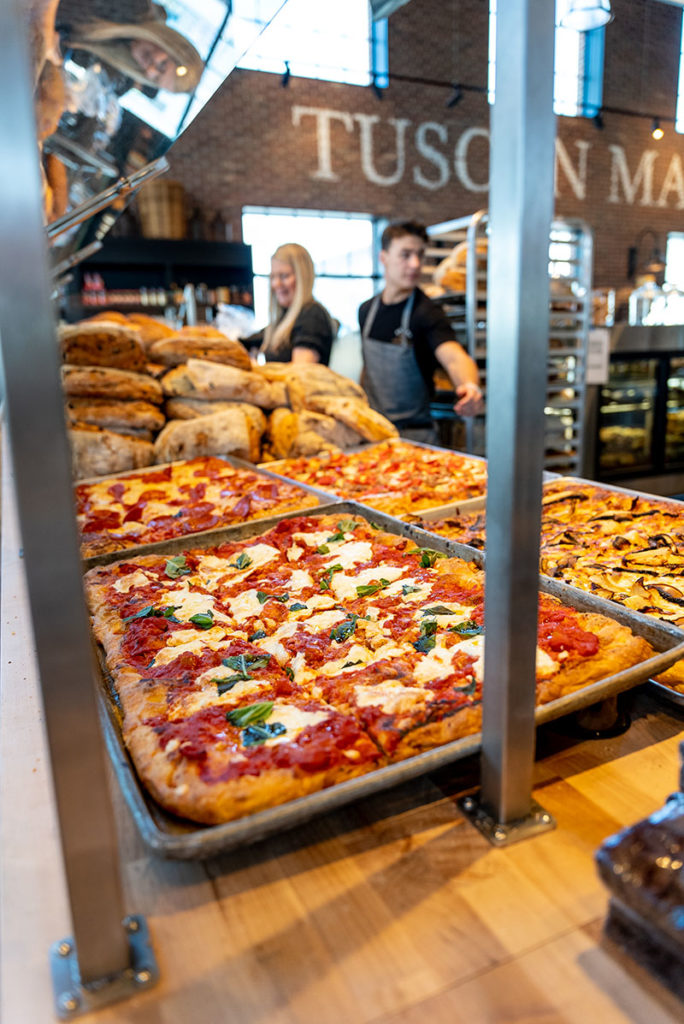
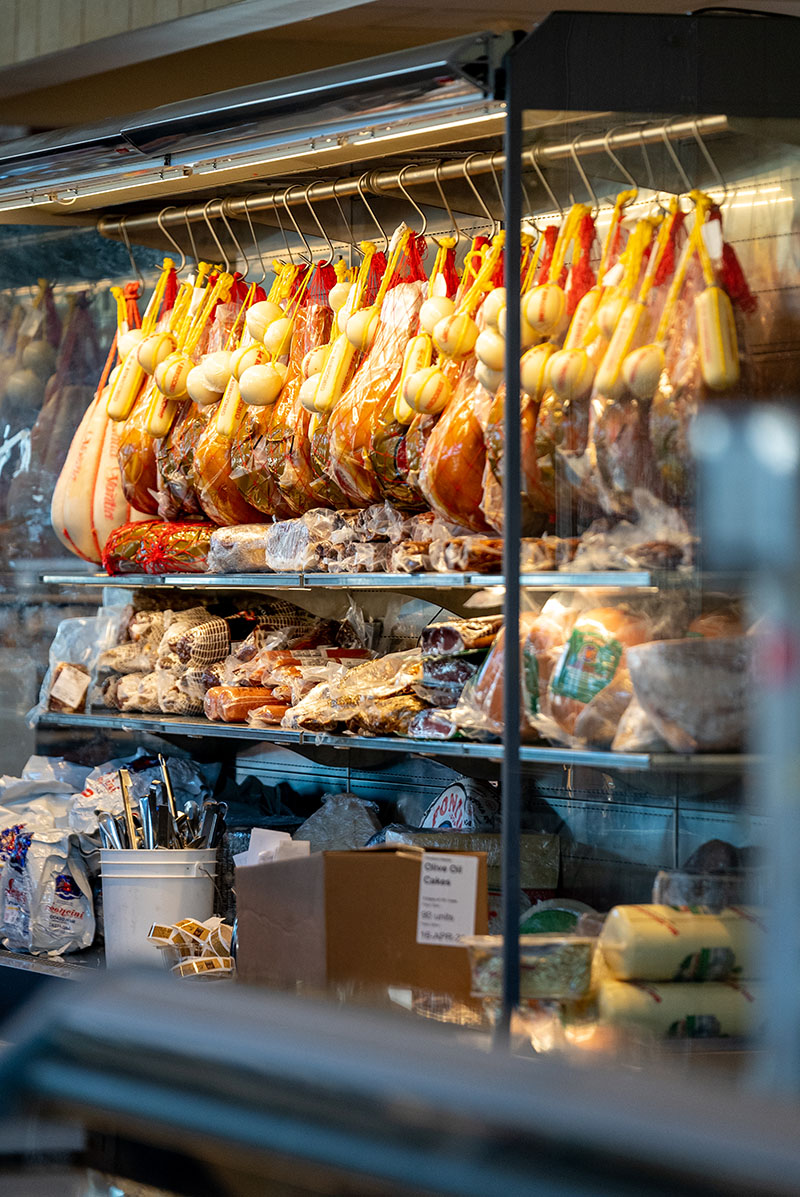
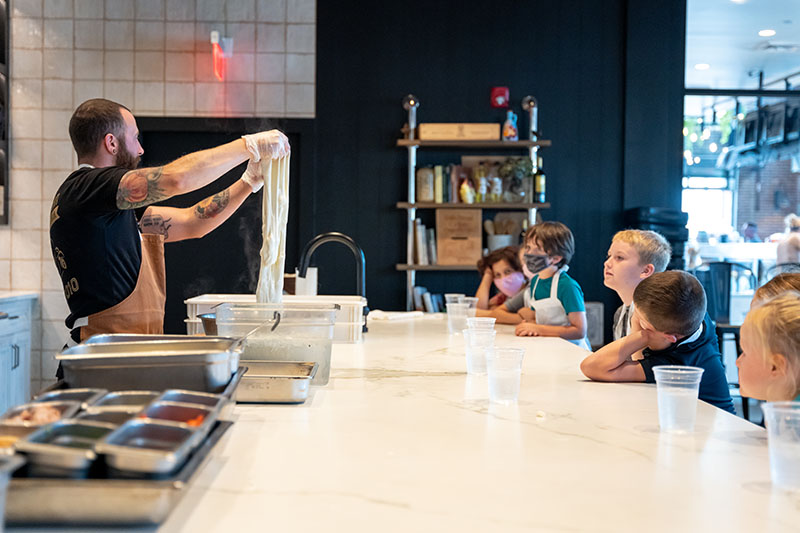
Salem’s restaurant, occupying a corner of the retail space, has a similar menu for the nights when you’d rather have someone else do the cooking and the clean-up. Crinieri says that many ingredients for the dishes served in the restaurants, like that honey, are available in the retail space. Especially with entertaining season coming up, the chef suggests using the honey to build a cheese board at home—perhaps with some imported truffled pecorino cheese or the Parmigiano Reggiano. If you pick Parmesan, you wouldn’t be alone—the market goes through two 90-pound wheels of the cheese each week.
Parmesan is also a key ingredient in a dish that has been a staple of the Tuscan family of restaurants for years—butternut squash ravioli. So popular that it’s available year round, the pasta is filled with freshly roasted squash, Parmesan, and two surprising ingredients that are available at the retail market: Amaretti cookies and fruit mostarda, a mix of preserved fruit flavored with mustard extract. “[Mostarda is] something that a lot of guests don’t know about,” Crinieri says. “But once they have it, their minds are blown by how good it is.”
That condiment would also shine on a charcuterie board, Crinieri says, noting that Tuscan cures a lot of its own meat. The kitchens ferment and age a variety of salumi, as well as whole-muscle cuts like coppa, pancetta, and the chef’s favorite, bresaola —a cured beef eye-round that ages for six months, yielding intense flavors of juniper, rosemary, and brown sugar. “It’s simple and kind of complex at the same time,” he says.
Much like Italian cooking itself—start with the right ingredients, and the rest is pretty easy. Which is exactly the aim of Tuscan Market. Whether you want to try to make its famous butternut squash ravioli from scratch, grab a fresh package to cook at home, or just enjoy it in the cáfe, perhaps with a glass of pinot grigio, Tuscan Market has your back.

